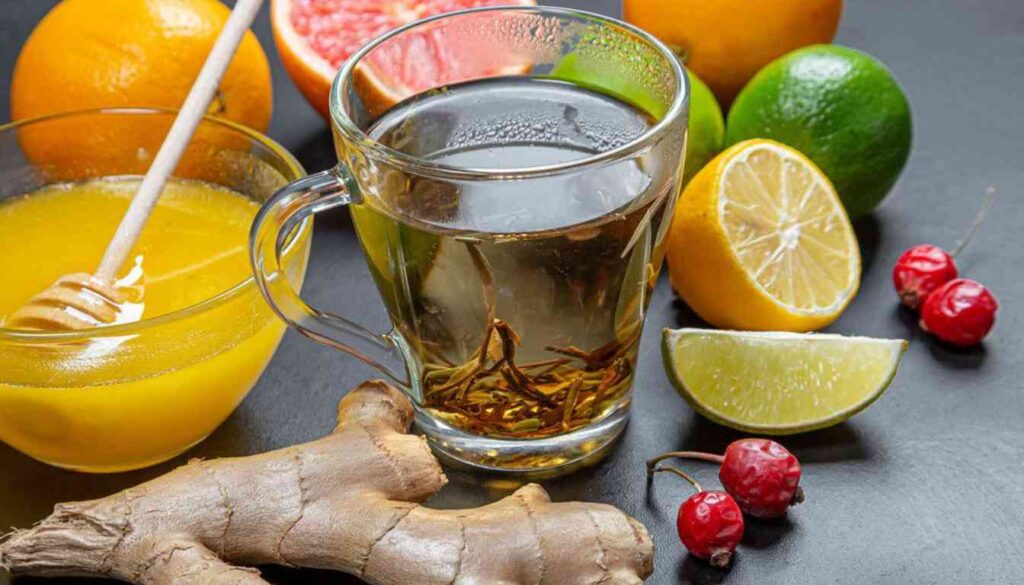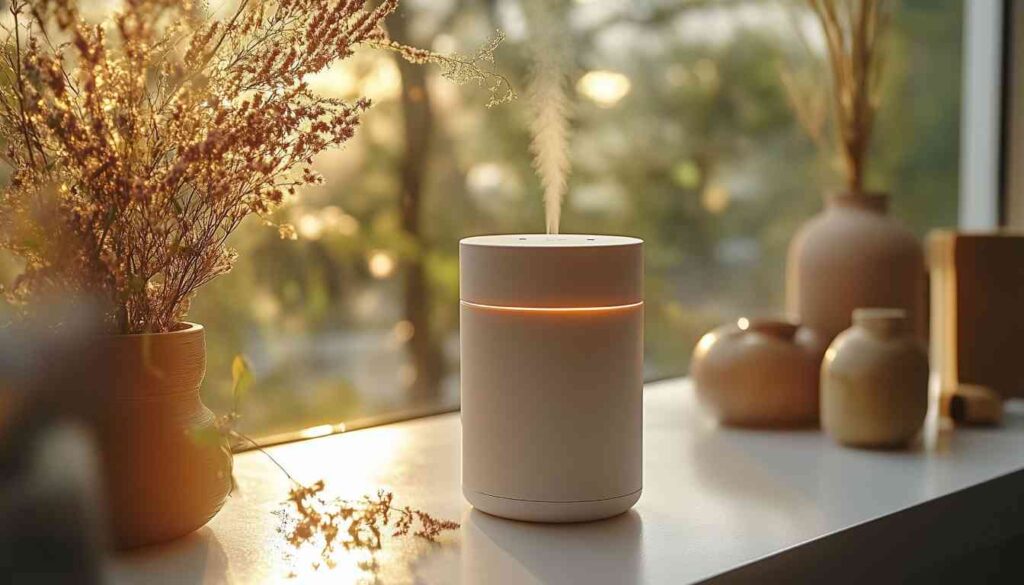Sinus congestion is a condition that affects millions of people around the world. It occurs when the nasal passages become swollen and inflamed, leading to breathing difficulties, headaches, and pressure in the face. Common herbal remedies for sinus congestion include eucalyptus, peppermint, ginger, and chamomile. These herbs are valued for their anti-inflammatory and decongestant effects, which help ease swelling and inflammation in the nasal passages.
While over-the-counter medications can provide relief, many people prefer to use natural remedies to alleviate their symptoms. Herbal remedies, in particular, have been used for centuries to treat sinus congestion and other respiratory conditions. Herbal remedies are natural plant-based remedies that have been used for thousands of years to treat a variety of ailments. They are often used as an alternative to traditional medicine because they are believed to be safer and more effective.
Natural remedies are a great option for people who want to avoid the side effects of medication or who prefer a more holistic approach to healthcare. While they may not work for everyone, many people find that herbal remedies can provide significant relief from their symptoms. If you are experiencing sinus congestion, it may be worth trying some of these natural remedies to see if they can help you breathe easier.
Understanding Sinus Congestion – Herbal Remedies Sinus Congestion
As someone who has suffered from sinus congestion, I understand how uncomfortable and frustrating it can be.
Sinus congestion occurs when the sinuses become inflamed and produce excess mucus, causing a blockage in the nasal passages. This blockage can lead to pain, headaches, and difficulty breathing.
Causes of Congestion – Herbal Remedies Sinus Congestion
There are several causes of sinus congestion, including:
- Sinus infection: When bacteria or viruses infect the sinuses, they can cause inflammation and excess mucus production.
- Allergies: Allergens such as pollen, dust, and pet dander can trigger an allergic reaction that leads to sinus congestion.
- Cold and flu: These viral infections can cause inflammation and mucus production in the sinuses.
- Environmental irritants: Exposure to smoke, pollution, and other irritants can cause sinus congestion.
- Structural issues: Nasal polyps, a deviated septum, or other structural issues in the nose can cause sinus congestion.
Symptoms and Complications – Herbal Remedies Sinus Congestion
Sinus congestion can cause a variety of symptoms, including:
- Nasal congestion: The feeling of stuffiness or blockage in the nose.
- Headache: Pain or pressure in the forehead, cheeks, or around the eyes.
- Facial pain: Pain or pressure in the face, particularly around the sinuses.
- Postnasal drip: Excess mucus that drips down the back of the throat.
- Sore throat: Irritation or pain in the throat.
- Bad breath: Foul odor caused by the buildup of bacteria in the mouth and throat.
- Fatigue: Feeling tired or run-down.
If left untreated, sinus congestion can lead to complications such as sinusitis, a bacterial infection of the sinuses.
It’s important to see a doctor if you experience any of the following symptoms: fever, severe headache, vision changes, confusion, and stiff neck.
Herbal Remedies for Sinus Relief
As someone who has suffered from sinus congestion, I know how frustrating it can be to deal with this condition.
While there are many over-the-counter medications available, I prefer to use natural remedies whenever possible. Here are some herbal remedies that have been shown to provide relief from sinus congestion.
Eucalyptus and Essential Oils
Eucalyptus has been used for centuries to treat respiratory problems, including sinus congestion. The cineole in eucalyptus oil has anti-inflammatory properties and acts as a mucolytic, helping to break up mucus in the sinuses.
One way to use eucalyptus oil is to add a few drops to a bowl of hot water and inhale the steam. You can also add a few drops to a diffuser and let it run in your room while you sleep. Other essential oils that can help with sinus congestion include peppermint, tea tree, and lavender. These oils can be used in a diffuser or added to a carrier oil and applied topically to the chest or back.
Herbal Steams and Inhalation
Herbal steam and inhalation can be a great way to relieve sinus congestion. One popular herb for this purpose is ginger. Ginger has anti-inflammatory properties and can help to reduce inflammation in the sinuses. To make ginger steam, simply add a few slices of fresh ginger to a pot of boiling water and inhale the steam.
Another herb that can be used for steam inhalation is thyme. Thyme has antibacterial properties and can help to clear out any infection that may be causing your sinus congestion. To make a thyme steam, add a handful of fresh thyme to a pot of boiling water and inhale the steam.
Herbal Teas and Supplements
Herbal teas and supplements can also help relieve sinus congestion. One popular herb for this purpose is echinacea. Echinacea has immune-boosting properties and can help fight off any infection that may be causing your sinus congestion. You can find echinacea supplements at most health food stores.
Another herb that can be helpful is nettle. Nettle has anti-inflammatory properties and can help to reduce inflammation in the sinuses. You can find nettle tea at most health food stores, or you can make your own by steeping fresh nettle leaves in hot water.
Conventional Treatments – Herbal Remedies Sinus Congestion: Get Natural Relief
When it comes to treating sinus congestion, there are several conventional treatments available. These treatments can be effective in alleviating symptoms and helping you feel better.
Decongestants and Antihistamines
Decongestants and antihistamines are often used to treat sinus congestion. Decongestants work by constricting the blood vessels in the nasal passages, which helps to reduce swelling and congestion.
Antihistamines, on the other hand, work by blocking the action of histamines, which are chemicals that are released in response to an allergen. This can help to reduce inflammation and congestion. It is important to note that decongestants and antihistamines may not be suitable for everyone. They can cause side effects such as drowsiness, dry mouth, and dizziness.
It is also important to talk to your doctor before taking any over-the-counter medication, as they may interact with other medications you are taking.
Nasal Sprays and Irrigation
Nasal sprays and irrigation can also be effective in treating sinus congestion. Nasal sprays work by delivering medication directly to the nasal passages, which can help to reduce inflammation and congestion.
Nasal irrigation, on the other hand, involves flushing out the nasal passages with a saline solution. This can help remove mucus and other irritants from the nasal passages which can reduce congestion and improve breathing.
It is important to use nasal sprays and irrigation correctly to avoid causing further irritation or damage to the nasal passages. Also, use sterile equipment and clean water when performing nasal irrigation to avoid introducing bacteria or other contaminants into the nasal passages.
Prescription Medications
In some cases, prescription medications may be necessary to treat sinus congestion. Antibiotics may be prescribed if the congestion is caused by a bacterial infection. Steroids may also be prescribed to reduce inflammation and congestion.
It is important to follow your doctor’s instructions when taking prescription medications, as they may have side effects and may interact with other medications you are taking.
Lifestyle and Home Care – Herbal Remedies Sinus Congestion
As someone who has dealt with sinus congestion, I know how frustrating and uncomfortable it can be. While herbal remedies can be helpful, there are also lifestyle and home care measures that can make a big difference in managing symptoms. Here are a few things that have worked for me:
Humidity and Hydration
One of the best ways to relieve sinus congestion is by increasing the humidity in your home. This can be done by using a humidifier or vaporizer, which can help to moisten the air and make it easier to breathe.
Another option is to use a neti pot, which can help to flush out the sinuses and relieve congestion. In addition to increasing humidity, it is also important to stay hydrated. Drinking plenty of fluids, such as water and herbal tea, can help to thin mucus and make it easier to expel. It is also important to avoid caffeine and alcohol, which can dehydrate the body and make congestion worse.
Diet and Nutrition
Eating a healthy, balanced diet can also help to relieve sinus congestion. Fruits and vegetables are rich in vitamins and antioxidants that can boost the immune system and help fight off infections.
In particular, foods that are high in vitamin C, such as citrus fruits and berries, can be especially helpful. It is also important to avoid foods that can worsen congestion, such as dairy products, which can increase mucus production. Spicy foods can also irritate the sinuses and make congestion worse.
Rest and Recovery
Getting plenty of rest and taking time to recover can also help manage sinus congestion. When you are sick, your body needs time to heal, and pushing yourself too hard can make symptoms worse. Taking a warm compress and sleeping with your head elevated can also help to relieve congestion and promote healing.
Preventive Measures and Tips – Herbal Remedies Sinus Congestion: Get Natural Relief

Avoiding Triggers
As someone who has experienced sinus congestion, I know how important it is to avoid triggers that can exacerbate symptoms. Allergens such as pollen, dust, and pet dander can irritate the nasal passage and cause congestion. It’s important to identify your triggers and take steps to avoid them.
You can use a HEPA filter in your home to reduce the amount of allergens in the air. Additionally, avoiding smoke, whether it’s cigarette smoke or wood-burning stoves, can help prevent congestion.
Strengthening Immunity
Strengthening your immune system can also help prevent sinus congestion. Eating a healthy diet rich in vitamins and minerals can provide your body with the nutrients it needs to fight off infections. Additionally, getting enough rest is important for your immune system to function properly.
Regular Nasal Care
Regular nasal care can also help prevent sinus congestion. Using distilled or sterile water to rinse your nasal passages can help remove irritants and mucus. You can use a Neti pot or nasal spray for this purpose.
It’s important to follow proper hygiene practices when using these products to avoid infection. Additionally, using a humidifier can help keep the nasal passages moist, which can prevent congestion.
When to See a Doctor – Herbal Remedies Sinus Congestion
As herbal remedies for sinus congestion may not be suitable for everyone, it is important to know when to see a doctor. In some cases, sinus congestion can lead to severe symptoms that require medical attention.
Recognizing Severe Symptoms
If you experience any of the following severe symptoms, it is important to seek medical attention immediately:
- High fever (above 101.5°F or 38.6°C)
- Severe headache
- Stiff neck
- Confusion or difficulty concentrating
- Severe swelling around the eyes or forehead
- Vision changes
- Severe sinus pain that is not relieved by over-the-counter medications
- Shortness of breath or difficulty breathing
These symptoms may indicate a more serious condition, such as acute sinusitis or a respiratory infection, and require prompt medical attention.
Treatment Referrals
If your symptoms are not severe but persist for more than 10 days, or if you experience recurrent sinus infections, it may be time to see a doctor. Your doctor may recommend prescription medications, such as antibiotics or corticosteroids, to treat your symptoms. They may also refer you to an ear, nose, and throat specialist for further evaluation and treatment.
Before You Go – Herbal Remedies Sinus Congestion: Get Natural Relief

Sinus congestion – it’s like a traffic jam in your nose! But don’t worry, herbal remedies are here to clear the way! And where better to learn about them than at theherbprof.com?
Let’s start with the basics. Sinus congestion is often caused by inflammation. Enter herbal remedies – nature’s little warriors against this discomfort. You can check our homepage here.
Now, you might be wondering, where can I find these herbal remedies? Well, that’s where theherbprof.com comes in. It’s your one-stop shop for all things herbal. From peppermint to eucalyptus, we’ve got you covered!
So, next time you’re dealing with sinus congestion, why not give herbal remedies a try? They’re gentle, effective, and best of all, they come straight from Mother Nature herself.
And remember, for all your herbal needs, theherbprof.com is your go-to place. So, what are you waiting for? Let’s kick that sinus congestion to the curb, naturally!
References – Herbal Remedies Sinus Congestion: Get Natural Relief
Little Herb Encyclopedia, by Jack Ritchason; N.D., Woodland Publishing Incorporated, 1995
The Ultimate Healing System, Course Manual, Copyright 1985, Don Lepore
Planetary Herbology, Michael Tierra, C.A., N.D., Lotus Press, 1988
Handbook of Medicinal Herbs, by James A. Duke, Pub. CRP Second Edition 2007
The Complete Medicinal Herbal, by Penelope Ody, Published by Dorling Kindersley
Check the Following Articles!
Herbal Extraction Machine: How To Choose the Right One
Herbalist Shampoo: Natural Hair Care for Healthy Locks
Herbal Remedies Sinus Congestion: Get Natural Relief
Herb with Pink Flowers: Identification and Uses
Frequently Asked Questions – Herbal Remedies Sinus Congestion
1. What natural remedies can help alleviate sinus congestion?
Several natural remedies can help alleviate sinus congestion.
One of the most effective remedies is steam inhalation. Inhaling steam can help to loosen mucus and relieve congestion.
You can also add essential oils like eucalyptus or peppermint to the steam for added benefits.
Another effective remedy is saline nasal irrigation. This involves flushing out the sinuses with a saline solution. This can help to clear out mucus and relieve congestion. You can use a Neti pot or a saline nasal spray for this purpose.
2. Which herbs are known to be effective for treating allergies and sinus issues?
Several herbs are known to be effective for treating allergies and sinus issues.
Some of the most effective herbs include ginger, turmeric, and garlic. These herbs have anti-inflammatory properties that can help to reduce inflammation in the sinuses and relieve congestion.
Other herbs that are known to be effective include stinging nettle, butterbur, and licorice root. These herbs can help to reduce inflammation and relieve allergy symptoms.
3. Can certain foods act as natural decongestants to relieve sinus pressure?
Yes, certain foods can act as natural decongestants to relieve sinus pressure.
Some of the best foods to eat include spicy foods like chilli peppers, horseradish, and wasabi. These foods contain a compound called capsaicin, which can help to relieve congestion.
Other foods that can act as natural decongestants include garlic, onions, and ginger. These foods have anti-inflammatory properties that can help to reduce inflammation in the sinuses and relieve congestion.
4. Is there a permanent home remedy for allergic rhinitis?
There is no permanent home remedy for allergic rhinitis, but there are several remedies that can help to relieve symptoms.
One of the most effective remedies is to avoid allergens that trigger your symptoms.
You can also use a saline nasal spray to flush out your sinuses and relieve congestion.
Other remedies include using a humidifier to add moisture to the air, taking over-the-counter antihistamines, and using essential oils like lavender or peppermint to relieve congestion.
5. What are the best herbal treatments for congestion and cough?
Several herbal treatments can help to relieve congestion and cough.
Some of the best herbs include ginger, turmeric, and garlic. These herbs have anti-inflammatory properties that can help to reduce inflammation in the sinuses and relieve congestion.
Other herbs that are known to be effective include licorice root, stinging nettle, and butterbur. These herbs can help to reduce inflammation and relieve allergy symptoms.
6. Are there any quick home remedies to treat a sinus infection?
Several quick home remedies can help to treat a sinus infection.
One of the most effective remedies is steam inhalation. Inhaling steam can help to loosen mucus and relieve congestion.
You can also use a saline nasal spray to flush out your sinuses and relieve congestion.
Other remedies include drinking plenty of fluids, using a humidifier to add moisture to the air, and taking over-the-counter pain relievers like acetaminophen or ibuprofen.
